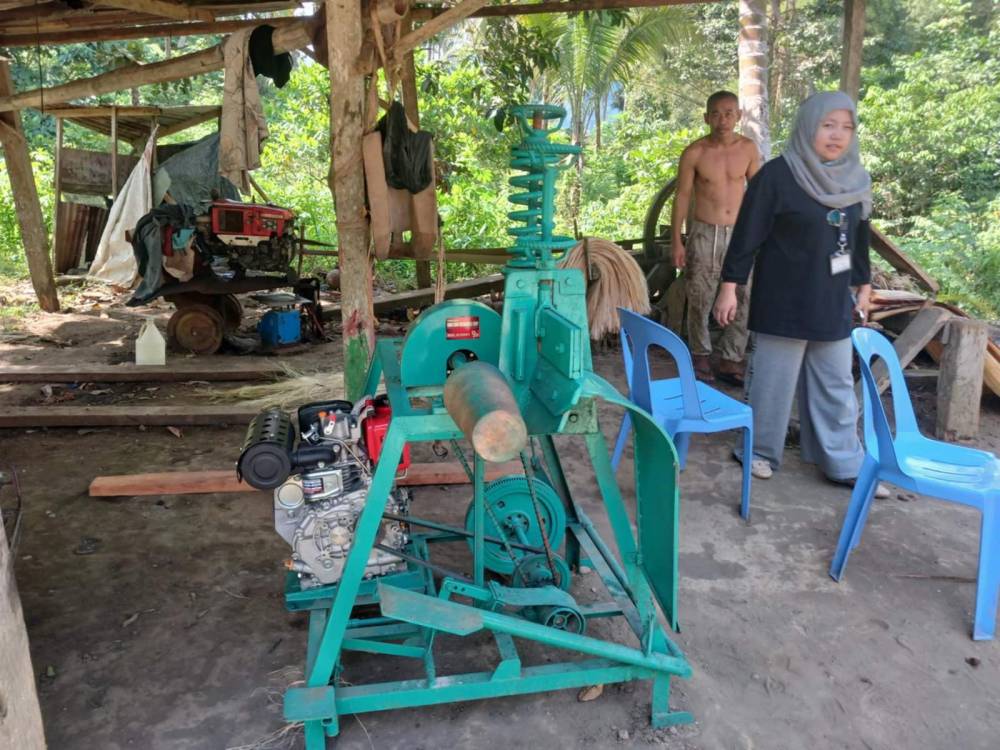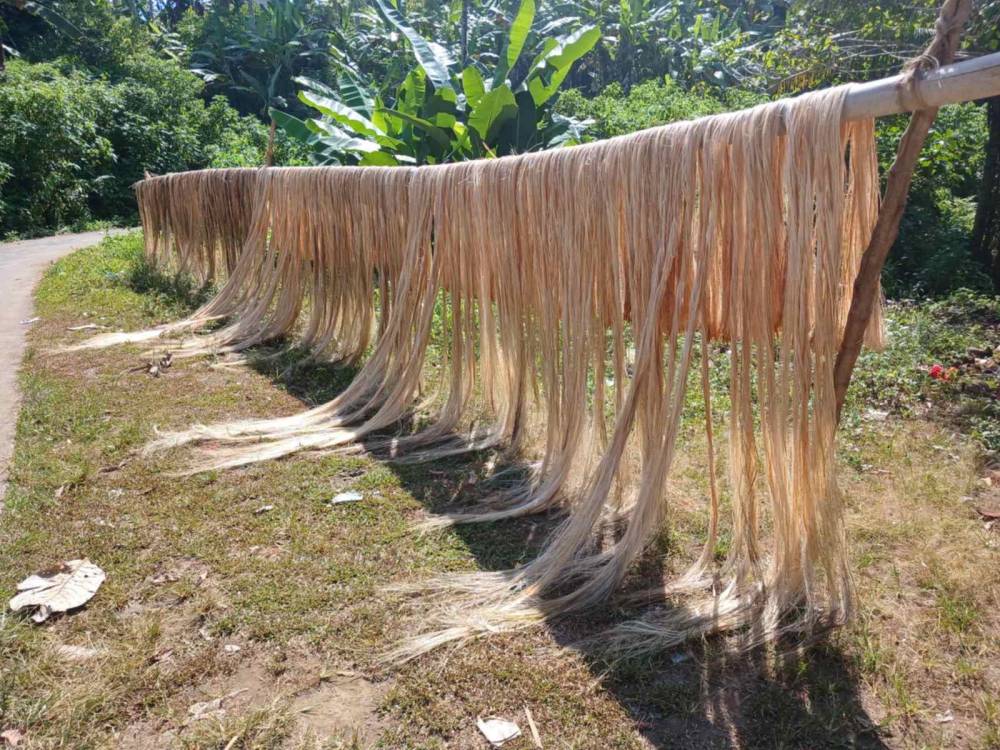Shield against climate change tantrums

(Third of a series)
MATANOG, MAGUINDANAO DEL NORTE—Abaca trees are bringing relief to the main base of the Moro Islamic Liberation Front (MILF) under threat of climate change.
Last September, a landslide crashed into the rolling hill of Barangay Bugasan Sur, killing four people and destroying 500 houses.
Also damaged was a wall of the two-classroom community learning center in the area covered by Camp Abubakar. The center is used in an internationally funded program to develop the region.
The tragedy prompted the planting of abaca as an alternative crop to upland corn and rice and mitigate the damage caused by unusual rain and flooding.
“The idea is not simply protection, but also to raise income for the farmers,” said Ismail Guiamel, 36, a director general of the Bangsamoro Ministry of Agriculture, Fisheries and Agrarian Reform.
The project is being implemented by the humanitarian agency Community and Family Services International (CFSI). Technical support is provided by the ministry.
A machine has been harnessed in CFSI’s Communities for Learning and Employment Project to process from the abaca tree fibers that are turned into rope and assorted other products such as woven bags and other decorative items.
Wiped out
President Joseph Estrada’s “all-out war” against the MILF in 2000 wiped out abaca farms at Camp Abubakar, one of six major MILF camps in six provinces undergoing rehabilitation under a peace agreement signed in 2005.
Abdullah Macapaar, 65, popularly known as Commander Bravo, had provoked Estrada by barricading a main highway.
Now a member of the Bangsamoro Parliament, he had earlier recognized the potential of abaca, planting trees in his Camp Bilal, which has become a showcase in the rehabilitation of the MILF strongholds.
There, he has built clinics, schools and dormitories and turned his camp into a tourist promenade.

Widows of War
Following the September disaster at Barangay Bugasan Sur, CFSI and its aid partners began the replanting of abaca and, with the collaboration of the Philippine Fiber Development Authority, processed sinewy strands for assorted products.
Local authorities devoted 10 hectares for the replanting and installed the abaca processing machine in Matanog.
Wives of slain MILF fighters were organized into a 76-member cooperative, called “Widows of War,” or WOW, to produce and market the products.
Istak Managsa, 55, municipal administrator of Matanog, said WOW has chapters in eight barangays.
“Women have shown determination to build their communities,” Managsa said. “What is peace without development?”
Illegal recruitment
Sarah Jane Sinsuat, a director of the Bangsamoro Ministry of Labor and Employment, Promotion and Welfare, said personnel are deployed in camps to conduct training for skills required in agricultural food production and in commercial companies here and abroad.
“There are practically no job opportunities in the camps, so we train the residents and look for jobs for them in the cities,” she said.
Most of those who join are wives and children of former MILF fighters.
Popular courses are dressmaking, baking, manicure and pedicure for those desiring to open beauty parlors.
The trainees are organized into cooperatives and registered with the labor office to prevent them from falling prey to illegal recruiters.
Bainora Aratuc, 30, a housewife with seven children, has a sewing machine she inherited from her grandmother and only learned how to use it after attending a dressmaking seminar.
Hairosalam Abdullah 42, used her dressmaking skills to turn abaca fibers into baskets, curtains and plate mats. She earns P10,000 a month from the effort—a fortune in an area where P20 means a decent meal.
Training the young
Guiamel, a civil engineer who did extensive studies on development technology at the University of Hiroshima as a scholar of the Japan International Cooperation Agency, said the ministry is moving forward to push development at the camp further.
Solar panels are being used in the learning center and are lighting the roads.
Plans are being drawn up to turn rivers into water-impounding basins during rainstorms for irrigation and hydroelectric power for community and commercial use.
“Water is not a threat but a resource,” said Guiamel.
“We are helping to educate the people how to stand on their own, to decide what crops to cultivate and turn the challenge of climate change mitigation into profit,” said Guiamel.
He is identifying young people who will carry out the program, patterned after one in Japan, where the talented youth are being trained in rural development to take over from an aging population.
(The writer is a former reporter and aid worker who has worked in conflict zones in Asia, Africa and the Middle East.)

















